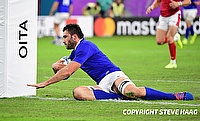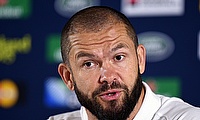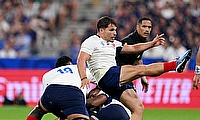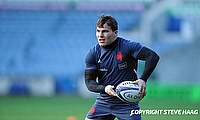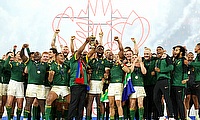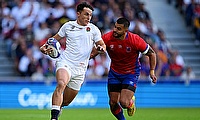Are Rugby players rolling in money or just rolling in the mud?
Money and sport is an emotive issue. Footballers, we are told, are obscenely overpaid for kicking a bit of air-filled plastic around, with their manicured mates.
Cynics comment that rugby is becoming more and more like football. But, how wealthy is the modern professional rugby player? The answer may surprise you.
The Payslip:
An average player in the Aviva Premiership earns approximately £81,000 per-annum. Major stars such as Nick Evans or Martin Castrogiovanni will earn between £180,000- £300,000. Carl Hayman earned £330,000 at Newcastle. The precise numbers vary from club to club, depending on what positions they prioritise within their salary cap and the number of burgeoning youngsters they promote.
Top-level academy contracts equate to around £10,000, with many university students and mid-level full-timers earning anywhere between £1,000- £7,000.
International players also have the benefit of test match appearance fees. At the 2011 World Cup, England players received £8,545 per-test. England cricketers earn £9,000 per-test.
The money is unarguably good, but careers are short and each day a player risks serious, long-term injury. Many academy players struggle to get by on their wage.
The Top 14 in France does not have a salary cap and can offer substantial contracts. Toulouse is reputed to run on a budget of ‚¬33.1m with some players earning £750,000 or more per-year. Bordeaux have the smallest Top 14 budget, a 'mere' ‚¬8m, nearly double the Aviva Premiership maximum.
Football:
Context is needed to fully understand these figures. At Chelsea, the average WEEKLY wage is reportedly £68,946 and the Barclays Premiership yearly average is £1.46m.
Bear in mind that most football sessions start at 10am and the 'gaffer' has them done and dusted by midday. A Rugby player is in at 7am and finished well after their footballing cousins have zoomed off, in their Lamborghinis, to play Call of Duty and chase supermodels around Mahiki.
Mercenary? :
Jamie Roberts drew severe criticism from some quarters for pursuing the allure of the euro in moving to Racing Metro. A variety of comments in social and mainstream media, labelled him a 'sell-out', 'greedy' and 'lacking commitment to Welsh rugby'. Such comments are judgemental and are easily said from the pristine air of the moral high ground. In simple terms, who amongst us would not seize the opportunity to move to Paris, learn French, earn better or equal money, still represent our country and achieve this all before being tied down with a young family? Precisely.
The changing face of rugby:
Anybody who believes rugby is sliding inextricably towards football's culture of immediacy and greed, is wrong. Yes, players are well-paid but they do significantly more than a footballer to earn significantly less. Events at Sale have been more representative of football but by and large, rugby teams still show a lot of patience with their coaching set ups. A footballing equivalent of Stuart Lancaster could never have become England manager.
Wealthy owners are not changing the face of rugby. Bruce Craig is an immensely wealthy man but he cannot go out and buy anybody he wants. Rugby has a salary cap of £4.26m. Bath cannot become Man City overnight. Wealthy owners must be embraced because for the time being, only four premiership clubs make a profit. The clubs are Exeter, Northampton, Gloucester and Leicester. Saracens lost £5.6m in 2011.
A day out at the rugby remains a pleasant experience and is truly welcoming to all ages. Fans get disgruntled, but the fact the growing trend of booing kickers is criticised, is indicative that rugby still has its soul intact.
For now, rugby players are rolling in the mud and not money.


